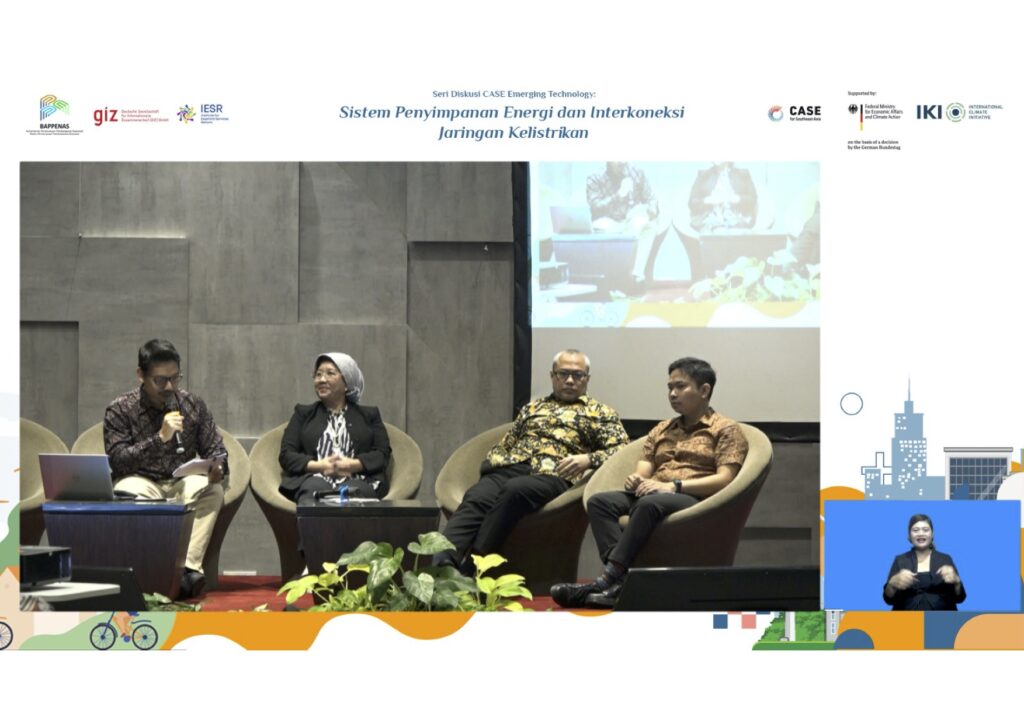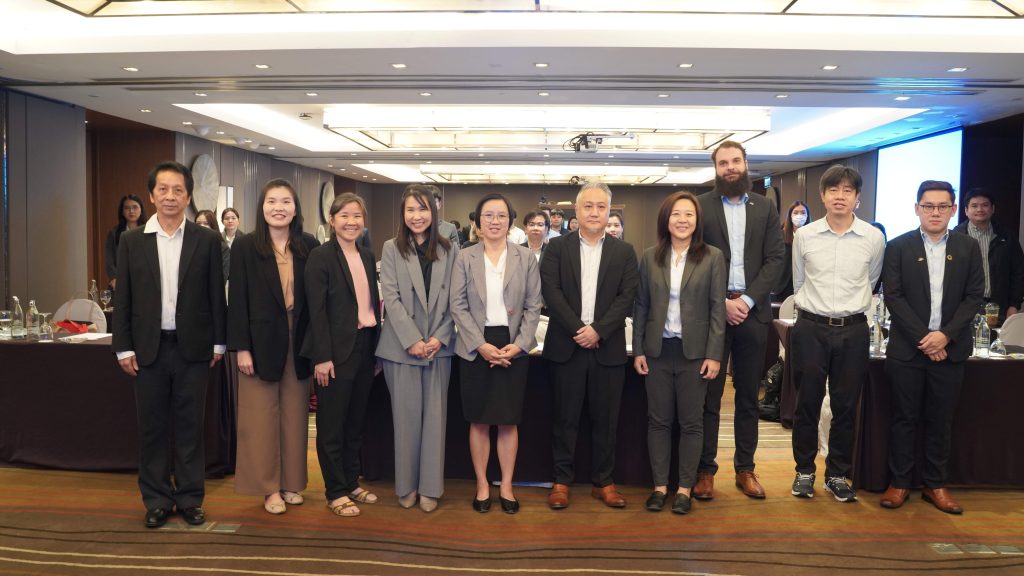Tuesday, 27 June 2023 – Project Clean, Affordable, and Secure Energy for Southeast Asia (CASE) hosted a series of discussions on emerging technologies as part of Road to Indonesia Sustainable Energy Week (ISEW) 2023. The first deep dive discussion will focus on the topic of grid interconnection and energy storage technologies which will become game changers for energy transition in Indonesia.
Although emerging technologies are crucial for the acceleration of energy transition, the rapid development tends to cause knowledge gaps between developed and developing countries. Furthermore, these technologies have also sparked debates between the pros and cons, the efficiency and its role in energy transition. However without the emerging energy technologies, it would be a challenge to ensure the affordability, security and reliability of clean energy.
Through these discussions, CASE is striving to deep dive into each specific technology that would assist Indonesia in its decarbonization journey and to reach the NZE target in 2060. Considering the massive renewable energy potential Indonesia currently holds, emerging technologies development are crucial to ensure the country maximizes its potential to generate clean energy.
Rachmat Mardiana, the Director of Electricity, Telecommunications and Informatics of the Ministry of National Development Planning/Bappenas, opened the session by highlighting the current progress in drafting Indonesia Emas by 2045. The plan with Indonesia Emas 2045 is to encourage economic development through social and economic transformation including the advancement of green infrastructure for electricity demand.
The opening speech is followed by an update about CASE presented by Deni Gumilang, Senior Advisor/Team Leader of CASE Indonesia, GIZ Energy Program. Deni explained the role of CASE as a project that supports the Government of Indonesia through collaboration with cross-sectoral stakeholders in building a narrative for energy transition. By organizing the Emerging Technology discussion series, Deni hoped that CASE could further contribute to the decision making process for energy transition in Indonesia.
Yudiandra Yuwono, Energy Transition Advisor of GIZ Indonesia, as the main presenter of the discussion highlighted the necessity to enhance inter-island grid connectivity, particularly between Java and other major islands, as an essential step towards future preparedness. Furthermore, As Indonesia endeavors to achieve net-zero emissions by 2060 and progressively reduce its reliance on fossil fuels, battery and pump storage technologies will indisputably play a crucial role in this energy transformation.
“Forecasts project a ten-fold increase in Indonesia’s electricity demand by 2060, underscoring the critical necessity to rapidly adopt and advance storage technology, therefore, Indonesia needs to be proactive in preparing for its future energy needs. And given that the potential for Renewable Energy (RE) is inextricably tied to geographical constraints, grid interconnectivity will enable Indonesia to fully exploit its abundant RE potential,” state Yuwono.
The discussion was divided into two sessions. The first one focused on energy storage and the second focused on grid interconnection. Multistakeholders panelists with expertise on both topics were invited to speak at the event.
One of the highlights of the first session, Professor Evvy Kartini, the Founder of National Battery Research Institute emphasized human resource capacity in understanding technology that is able to process resources to produce batteries. This holds the significance of human resource certification and capacity building in promoting Indonesia as a battery producer as an effort to support electrification.
“Standardization in human resources and capacity building are two critical aspects in developing technology that are able to support energy transition. Indonesia should take its pride not only because we have abundant resources such as nickels and minerals, but also because we can become the lead producer of batteries,” state Kartini.
In the second session, Warsono, Executive Director of PT PLN Indonesia mentioned the massive potential of renewable energy in Indonesia, yet there are challenges faced by PLN to be able to generate more clean energy, while considering the energy trilemma: affordability, sustainability and reliability.
“Islands like Maluku, Papua, Kalimantan have massive potential for renewable energy such as wind and solar. However the demands on these said islands are still low, and it will be costly to transport the electricity to other islands. This is one of the reasons why grid interconnectivity will be important for Indonesia to reach its net zero emission target,” said Warsono.
During the two sessions, CASE Indonesia also invited experts from the Australian National University and Agora Energiewende to provide key takeaways on the implementation of energy storages as well as grid interconnection abroad. David Firnando Silalahi, a PhD Candidate for the Australian National University explained how 100% Renewable Energy is feasible in Tasmania and he also believes the same way for Indonesia. On the other hand, Alexander Dusolt, a Senior Associate on European energy policy, market design and integration of renewable energy from Agora Energiewende mentioned several lessons learned on the implementation of electricity grid interconnection from Europe such as improving security of supply, competition and the integration of renewables.
The emerging technology discussion series will continue for another 2 deep dive sessions until October 2023. With a series of upcoming discussions, CASE Indonesia aims to cover the developments and implementations of other technologies that are able to support energy transition in Indonesia.




